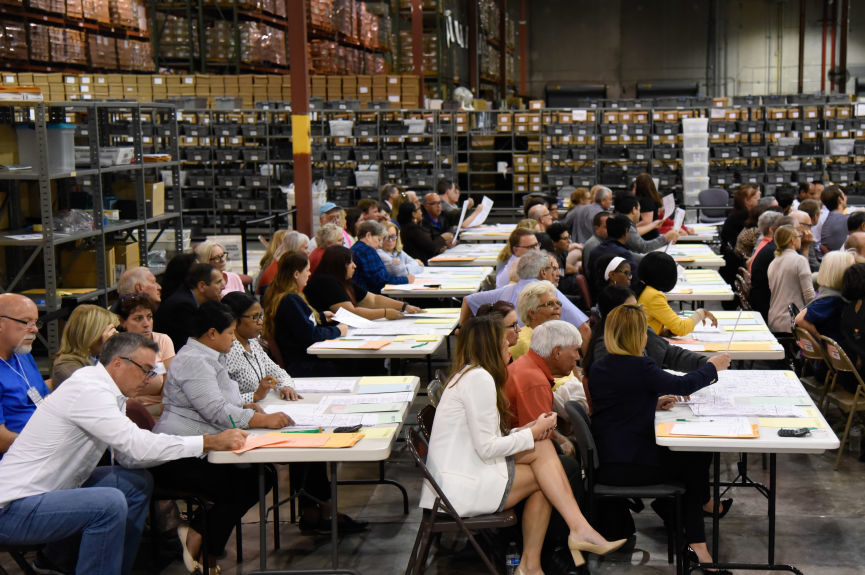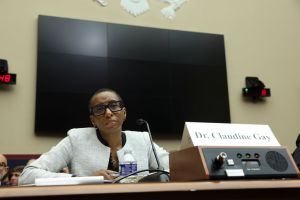All over America, election recounts are in progress. Is it a sign that democracy just doesn’t work as well as it used to? On the contrary, it’s a sign that Americans are more earnest now than ever before about getting the results right. Despite sharp polarization, nearly everyone believes that the candidate with the most votes should in fact take office.
Thousands of men and women are working to make sure the count is accurate. They know that, all over the world, democracies fail when the losers refused to accept the verdict of the electorate, or when the winner abolishes the system that brought him to power. From their earliest schooldays they’ve had drummed into them the idea that fair elections are sacrosanct, their nation’s bedrock.
The Founding Fathers, back in the 1780s, didn’t think they had created a democracy, and rarely used the word. They called it a republic, but in the early 1800s one state after the next rewrote its constitution, giving votes to all, or very nearly all, the white men. Since then the nation has celebrated the gradual extension of the vote to excluded groups: freed slaves after the Civil War of the 1860s, women in 1920, and 18-21-year-olds in 1971.
That doesn’t mean it’s been a frictionless process. African-Americans in the South were excluded by discriminatory laws between the 1880s and the 1960s. Ethnic ‘machines’ in the northern industrial cities were energetic ballot box-stuffers from the 1850s right into the 1950s and cared little for due process. Reasonable historians have raised the possibility that John F. Kennedy won the presidency in 1960 thanks to the help of thousands of voters in Chicago whom other sources showed to be dead and buried. Bit by bit, however, the abuses were reformed. The Voting Rights Act of 1965 did much to overcome racist bias.
The Watergate scandal was directly related to the issue of fair elections. President Nixon’s dirty-tricks gang, the ‘Plumbers’, were caught breaking into the Democratic Party’s election headquarters in the summer of 1972. They were planting bugs so as to eavesdrop on their rivals’ plans, which they would then be able to thwart or confuse. For the next two years Nixon fought to prevent the chain of evidence from leading back to him. When it did, he was forced to resign.
In the election of 2000, the whole nation waited breathlessly to discover which candidate, George W. Bush or Al Gore, had prevailed in Florida, knowing that the Florida outcome would decide the presidency. Exhausted volunteers and bureaucrats scrutinized every ballot paper and agonized over how to interpret the ‘hanging chads’ and ‘dimpled chads’ created by insufficient pressure on their ‘Votomatic’ machines.
Donald Trump had no sooner won the election of 2016 than he alleged voter fraud. The complexities of the Electoral College system meant that he had won the election fair and square, despite receiving fewer votes than Hillary Clinton. Knowing that this fact would cast doubt on his legitimacy among some voters, he wanted to assert that he really had won more than half of the honest voters, and that his apparent deficit was due to fraudsters. This was nonsense, but it bore witness to the widespread sense that it’s wrong to take office when you didn’t get more votes than your rival. If the Mueller investigation, still ongoing, establishes that Trump enlisted Russian aid to thwart a fair election, it will lead as surely to his resignation as it did to Nixon’s.
Many aspects of contemporary America are vulnerable to criticism. But the quality of its elections, and its citizens’ dedication to getting them right, are a cheering, rather than a depressing, feature of the contemporary scene.


















